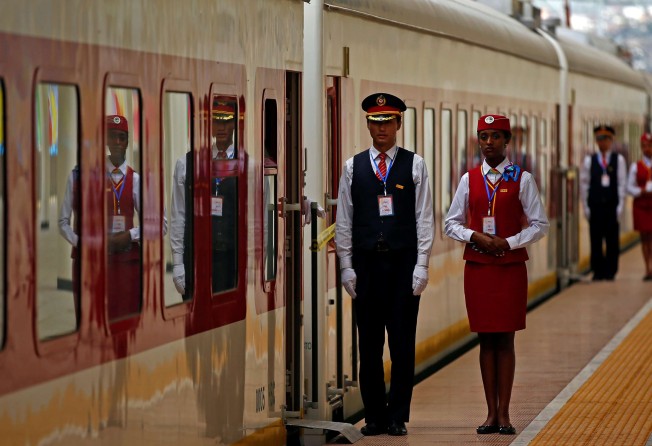
How to triple a stock’s price: a concept, a low float and a regulator looking the other way

What does it takes to triple a nobody stock within two months? Not much.
The mention of “One Belt One Road,” two accords with Laos and Djibouti, a 4 per cent free float, and some regulators that let the company say whatever it wants without having to put in much substance will do the job!
Chaoyue Group has proven the formula as its market capitalisation ballooned to HK$28 billion.
The hike began on September 22 when Chaoyue said instead of property and wine, it would sell “next generation worldwide settlement and clearing network”. The targets are countries along the “One Belt One Road”.
Never mind the jargon. The network is pipelines via which grandiose size of money flow from one country to another to pay off investments and trade.
The day after, Chaoyue appointed as chairman Luo Feng, whose company International Business Settlement(IBS) claimed to have developed such a system. Luo subsequently spent HK$2.6 billion to acquire 13.34 per cent stake from its top shareholder Yuen Leong who is left with 55 per cent control.
More positive news followed.
On October 6, Chaoyue issued a voluntary announcement saying that its system has been connected to that of the European Union, providing the “shortest way of settlement between Euro and renminbi.”
Then, it said it has signed a memorandum of understanding with the Central Bank of Laos to to set up a settlement network.
The Indochina country, which has only a handful of banks, is to become “one of the clearing settlement centres in Southeast Asia.”
A similar statement came out this week, the partner being the Ministry of Finance of Djibouti. The African state was ranked 177 by Euromoney for its investment safety, 25 down from Afghanistan.
There were quotes of this and that government policies. There was mention of the company attending this and that conference, but no information to four fundamental questions.
Firstly, how?
The announcements called IBS and Luo’s other companies its subsidiary. In fact, the IBS website already claimed itself to be listed in Hong Kong. Yet, there was no announcement on that.
Has Chaoyue acquired the intellectual property rights to the system which Luo claimed ownership since 2015 on his website? If yes, when was it done and at what price? If not, what is Chaoyue and Luo talking about?
Secondly, who is Luo Feng? What credential does he, or Chaoyue, have in making possible such an international network while these settlement networks are predominately developed by central banks?
The People’s Bank of China launched its international payment system after a year’s delay due to technical hurdles. Instead of a 24-hour coverage like its American rival, it is only operating out of Shanghai between 9 am and 8 pm for a consortium of 19 banks.
Independent sources provide little information. Luo’s websites listed investments in airports, e-commerce platform, a big data cooperation with State Information Centre, as well as the signing of a bank card deal with the Belgium government in the presence of Premier Li Keqiang.
Thirdly, what?
What will Chaoyue charge for its provision of market infrastructure while settlement networks are largely operated by central banks? What will Laos and Dijbouti pay for Chaoyue’s service and advice?
The settlements system is like sewage. It costs a lot to build but generate little ongoing revenue because you don’t want to make it costly to transfer funds. Profit making is unheard of in such a system.
Fourthly, where is the money for the investment? Chaoyue has been losing HK$200 million for two consecutive years and suffering negative cash flow with only HK$36 million cash in the bank.
Chaoyue will update and explain its new business development during its interim results announcement, scheduled for November 28, according to Veron Ng, acting as the company’s spokesman, in a n emailed response to the Post’s query/
Under our disclosure based regulatory regime, Money Matters would expect our regulators to have asked these questions to maintain a fair and transparent market.
Yet, nothing has happened so far.
Such a silence is deafening not only because Chaoyue is one of many that has been spinning without having to provide much substance. More importantly, it has been on a high concentration warning since 2012.
With a free float of only 3.78 per cent, it should be on the regulators’ watch list.
Yet, it is having a good time.